As GCSEs wind down, one of the areas you will no doubt be starting to think about is the start of the next academic year. One of the key challenges when looking forward to September can be around the new Year 7 science classes. We know these students have been doing some science during the first 6 years of their education - TIMSS 2023 data tells us that we are in the top 5 of benchmarked countries for primary science, and this has been rising consistently since 2011. However, in the absence of SATs and with a broad national curriculum, exactly what students have learned can vary widely based on each school’s science curriculum. This means that secondary teachers have very little understanding of primary science, an issue highlighted by Ofsted’s 2023 science subject report:
In 2019, 83% of Year 6 pupils reached the expected standard in science [this is the last time a benchmark survey was completed]. However, we are concerned that the status of science in some primary schools has remained at a lower level since national tests in science were removed in 2009, and that this has affected key stage 3 performance.
With no clear marker of what students know, it can be tempting to underestimate their knowledge as they start secondary school, and many teachers do. This can lead to repetition of core content, taking valuable time away from introducing new content and building a deeper understanding across KS3 lessons. It also compresses the time available to cover an already content-heavy secondary curriculum. It may also be tempting to assume all students are familiar with the full primary science curriculum, but experience shows this is not the case.
In September 2024, we designed and trialled a Science Baseline assessment to explore how we could better support in this area. Our aim was to create more than just a benchmarking tool - we wanted a resource that would support secondary science teachers in helping every student to succeed from the start. Last year, our assessment was used by over 5000 students across 33 different schools with resoundingly positive feedback. We are excited to be releasing this assessment to all teachers this year, completely free of charge.
The jump from the primary to secondary science curriculum presents an interesting challenge when considering the concepts they involve. Unlike the maths curriculum, where the primary curriculum sits almost entirely as a subset of the secondary curriculum, that is not true of science. In the primary science curriculum, students predominantly focus on highly concrete and observable phenomena such as the human body, the seasons and physical properties of materials. There is then a noticeable shift as students move onto secondary science, when the subject introduces more abstract ideas such as cells or the particle model.
Therefore, certain concepts within the primary curriculum serve to underpin the secondary curriculum more so than others. For secondary teachers, it is vital that students understand these foundational concepts, and so we focused on these when designing the content of the baseline assessment. This ensures the assessment highlights the most important knowledge gaps that students might have, allowing teachers to provide the most suitable support for students so they can continue onto the secondary curriculum with confidence and experience success.
To identify the concepts from the primary curriculum that are most formative when moving onto KS3, we carried out a mapping exercise to fully understand the evolution of the specification across the full 11 years, from Year 1 to Year 11. This helped us fully understand how different ideas developed through the years, and the relative focus that each key stage gives to them. We particularly focused on the transition stage between KS2 and KS3 as the most important area for the Year 7 baseline to assess.
Here is an example looking at how concepts relating to plants develop from KS1 through to KS3:
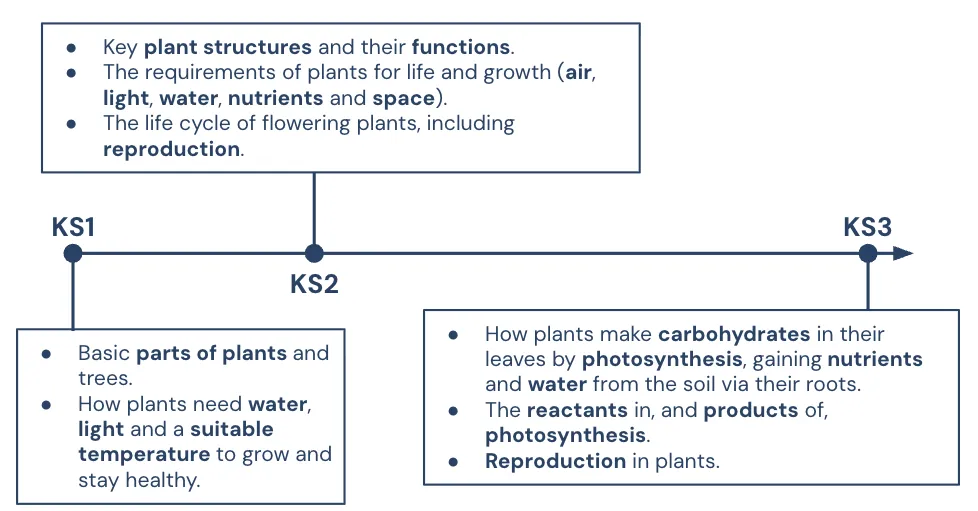
We can also look forward to KS4, where ideas of what plants need to grow and stay healthy, initially established in KS1, are firmly embedded in a wide range of topics across the curriculum, from photosynthesis to transport systems, feeding relationships and competition. Interestingly, plant reproduction loses its place on the curriculum in favour of more complex models of reproduction involving cell structures and genetics.
By looking at the evolution of these ideas across the whole 11-year curriculum, we can identify that the concepts from KS1 and KS2 which go on to underpin related concepts, are:
And so in our baseline assessment, we have designed a number of questions focusing on students’ understanding of the requirements of plants for life.
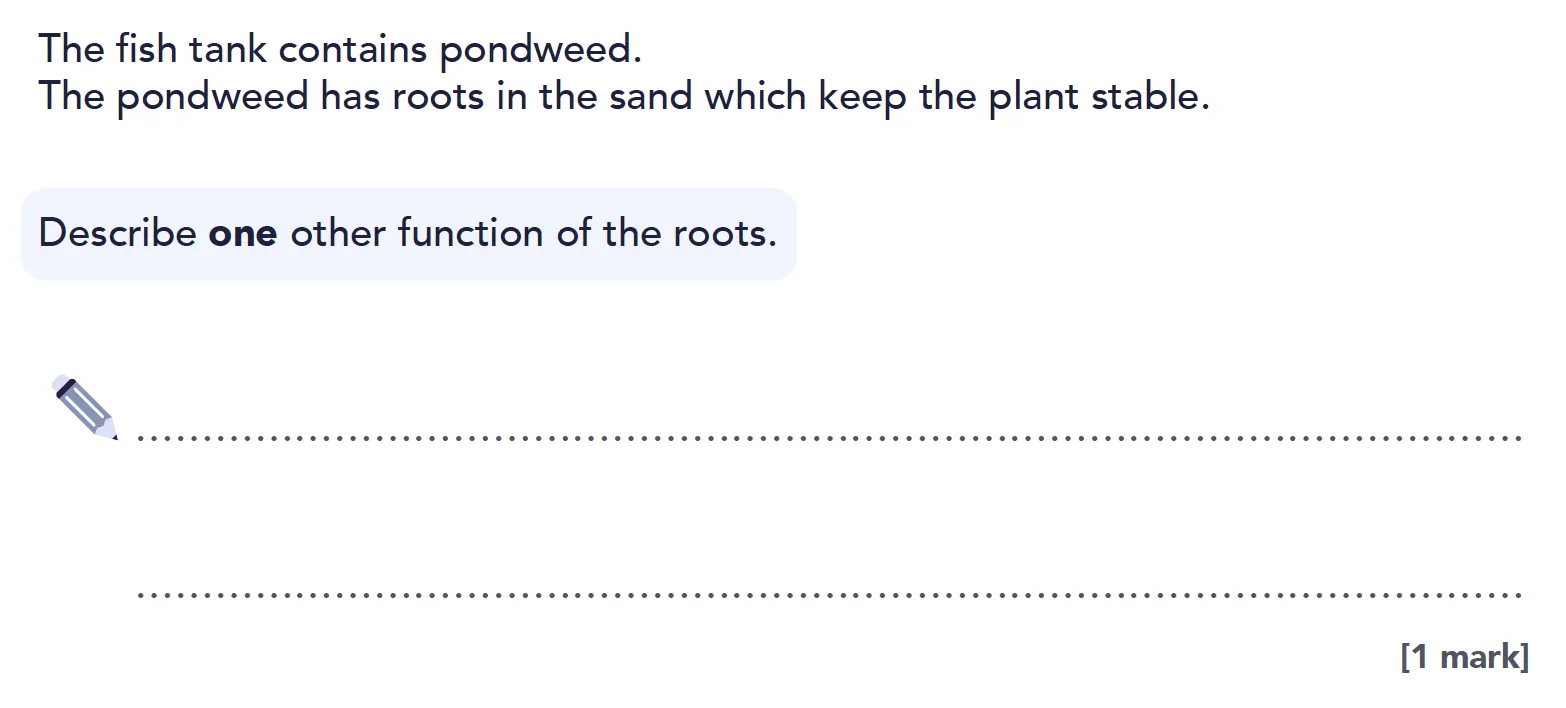
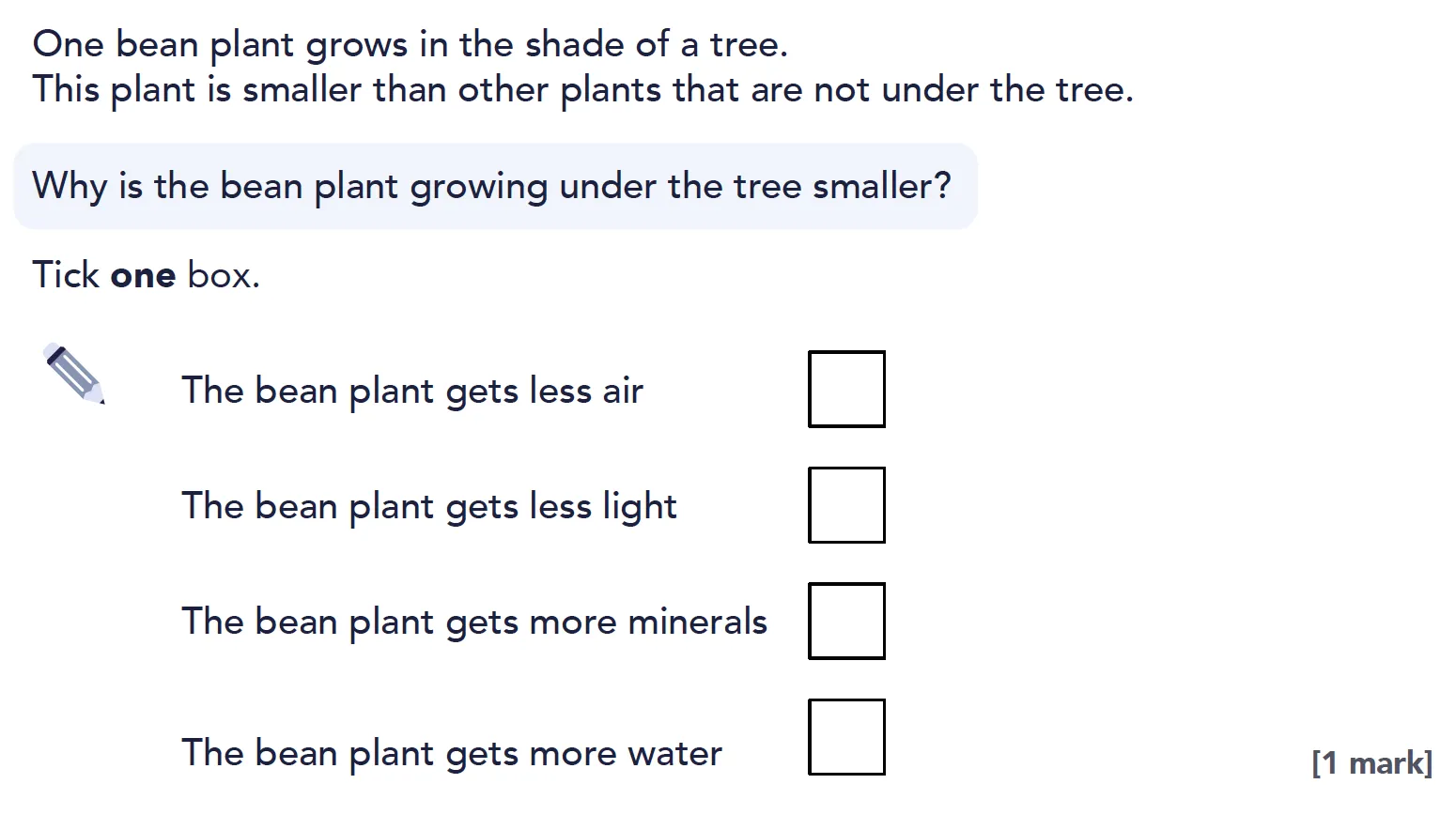
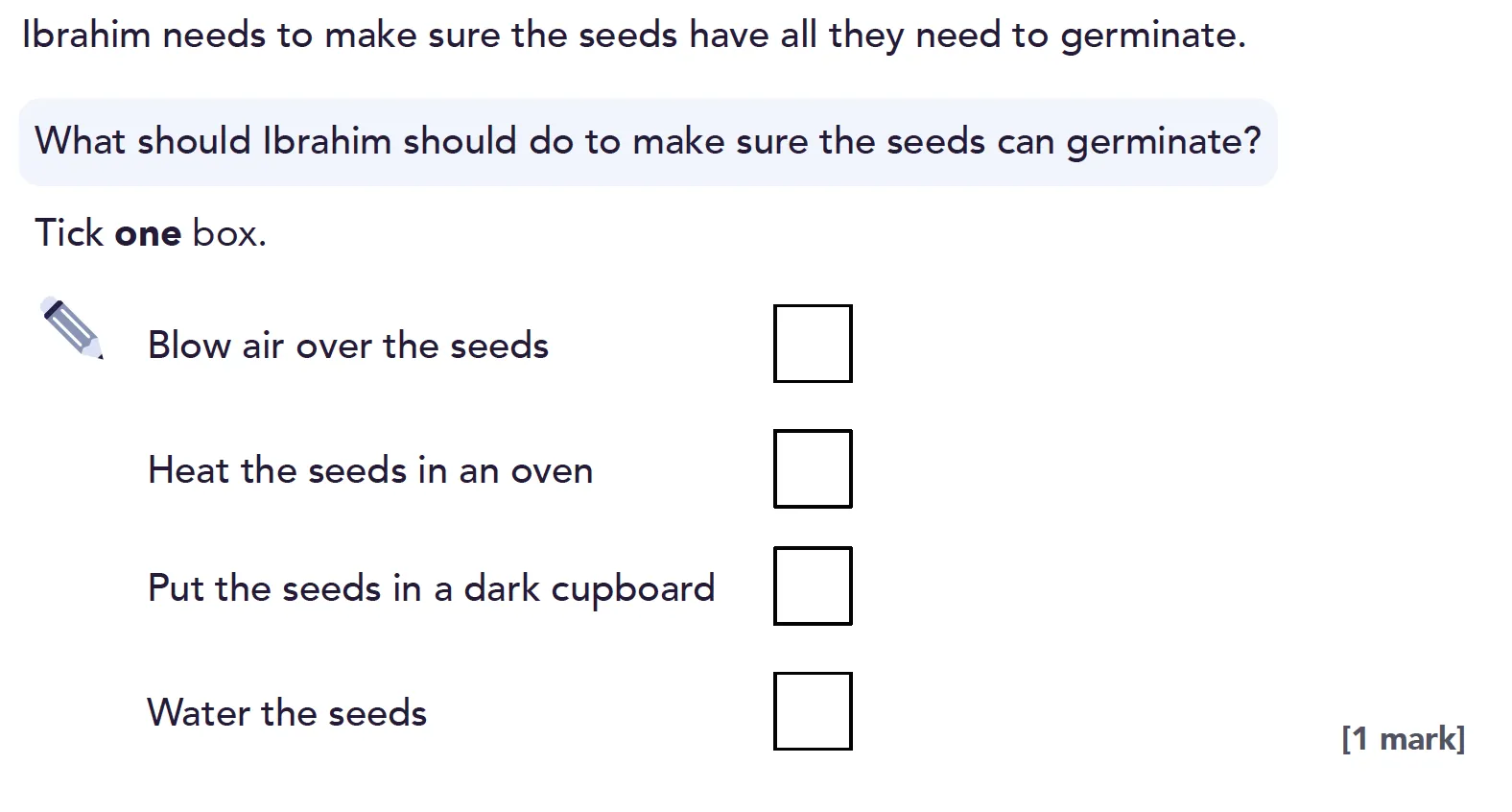
By assessing this concept across multiple questions, we give students plenty of opportunities to demonstrate what they know. This also leads to more accurate insights as we’re not inferring too much about student understanding from the performance across just a single question.
We analysed the whole primary and secondary curricula in this way, identifying the concepts from the primary that underpin concepts in secondary. This process led us to include the following nine substantive knowledge concepts in the assessment.
As we know, the substantive curriculum is only part of the story in science, and for students to excel in science, they also need to have a good grasp of disciplinary knowledge and the ability to think and work scientifically. We therefore applied a similar mapping process as above to the disciplinary knowledge throughout the primary and secondary curricula. Interestingly, we found much more coherence across this part of the curriculum, with many foundational working scientifically concepts being introduced as early as KS1. We therefore took the decision to include a strong focus on disciplinary knowledge within the assessment, with half of the available marks dedicated to disciplinary knowledge. The individual topics covered are:
We have deliberately designed our baseline to give students multiple opportunities to demonstrate knowledge across each topic, allowing for a deeper understanding of gaps in student knowledge. To support effective follow-up, we have designed a Question-Level Analysis (QLA) to use alongside the assessment. This isn’t about knowing if a student has done well in question 3b, but it is about giving you insights into students' understanding across each topic.
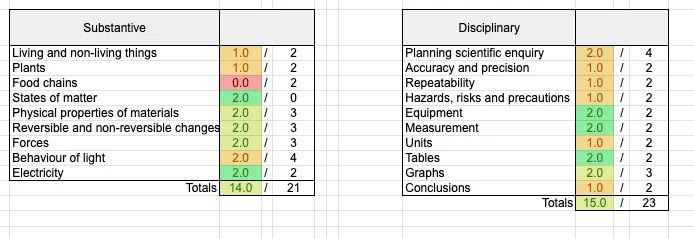
By aggregating student performance by topic, we move beyond the traditional QLA challenge of simply showing the hard questions and instead identify where key concepts are not well understood. This enables you to take more meaningful action to address gaps in student knowledge or understanding.
We hope that this new resource supports you and your team in helping student transitions into Year 7. We would love to hear your thoughts or questions. You can share your feedback using this dedicated form. We’ll also be looking to hold discussion sessions in late September to understand how you’ve used the assessment - so keep your eyes peeled for more details soon.